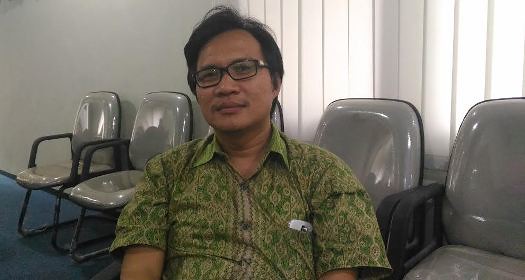Rudy
Academics of Faculty of Law University of Lampung
THE spread of the coronavirus (Covid-19) in Indonesia continues to increase. 1,868 people confirmed to have exposed to the coronavirus. The latest data on Saturday, July 25, when this column was written, the Covid-19 Task Force recorded that there were 97,286 positive confirmed cases. Compared to those recorded in May, there were only 12,000 cases.
Meanwhile, the spread of the corona in Lampung did not show more encouraging news. This data increases sharply every month. Seeing the trend on April 30, there were 46 infected cases then on May 31, the number rose to 131 people, and rose again to 190 people on June 30. The latest data on Saturday, July 25, recorded 247 people infected with Covid-19.
Overall, Indonesia has surpassed China with more than 97,000 cases. In comparison, Indonesia has only conducted 1.2 million specimen tests of all these positive cases, while China has done 90 million specimen tests. Imagine if Indonesia conducted more massive testing. Maybe we will be more surprised by the Pandora’s box of Coronavirus transmission in Indonesia.
Even the local government in Lampung has not conducted rapid or swabs tests specifically to find out the real number of coronavirus transmissions. This situation shows that the recent numbers might become an iceberg phenomenon. Maybe many people have been infected and become virus carriers. Meanwhile, the crowd is still happening on the street and the market. Indonesia then runs a new protocol called new adaptation or new normal. In Lampung, normal life has run on behalf of the new normal.
The new normal or new adaptation is life in the pandemic that is limited by certain health protocols. The health protocol contained in the Minister of Health’s Decree such as a suggestion to wearing masks, keep a distance, and avoid crowds.
The problem is new adaptation means normal activities for some people as if the Coronavirus is gone. The Coronavirus is still present and spread, mainly transmitted through droplets (small droplets), which are produced when an infected person coughs, sneezes, or exhales.
Transmission can occur when breathing contaminated air when they are too close to an infected person. We can also get it when we touch the surface of a contaminated object and then touch our eyes, nose, or mouth. Therefore, the neglect of health protocols can cause coronavirus transmission in the community.
Moreover, this condition requires workers to work and do activities in the community. In this case, ASN, the business, and workers’ community have a major contribution to breaking the chain of transmission due to a large number of workers and the amount of mobility, as well as population interactions that are generally caused by work activities.
The transmissions that occur within the scope of the Ministry of Education and Culture have infected Directorate General of Higher Education, Unhas, USU, and UNS. One of the reasons is the neglect of established health protocols.
The health protocol which is now widely voiced and promoted does not turn out to be a legal awareness. In fact, near the banner of wearing a mask, the use of it is displayed just elegantly under the mouth.
Government officials also do not set a good example by opening the mask when they’re talking and holding meetings in a small space that causes no safe distance. This problem then becomes worse with the habits of the society and business people who only wear masks around their necks, or don’t even wear them at all.
In this context, legal awareness to implement health protocols is far from what people expected. The implementation of this protocol is just jargon without any awareness to obey it. If it can be concluded that the lack of legal awareness to comply with this protocol is the source of massive transmission in Indonesia.
Awareness vs. Legal Compliance
Law in the broadest sense is something that should or should not have the nature of coercion. Law is often harmed, violated, or ignored by the people who still do not consider the importance of existing laws in society. These people are not aware and do not obey the law.
In the context of this lack of legal awareness, legal positivism then emerges, and one of the elements is sanctions was made to establish legal compliance. This legal compliance is different from legal awareness because there are external factors that force people to obey the law. Therefore, the law requires sanctions to force legal compliance.
In the context of massive corona transmission, criminal sanctions are needed for people who do not comply with health protocols. Social sanctions are not enough because it will be effective if there is legal awareness in the community. So at this time, in a condition where people’s legal awareness is very low, it is impossible to enforce it.
As a region that does not implement PSBB, Lampung has to form regional regulations to impose sanctions. This is due to the mandate of Article 15 of Law 12/2011 concerning the Establishment of laws and regulations (P3) which clearly states that criminal provisions can only be contained in laws (UU) and regional regulations (perda).
The criminal provisions in regional regulations can be imprisonment for a maximum of six months or maximum fine of Rp 50 million. Therefore, the implementation of health protocols violators can be regulated in regional regulations, both provincial and district/city regulations. The provision based on regional authority in the Health Act and Law 12/2011 concerning the formation of laws and regulations.
The thought of giving fines has begun to strengthen in the central and some local governments in Indonesia. The rest is whether the local government of Lampung is willing or not to give the sanction. []










